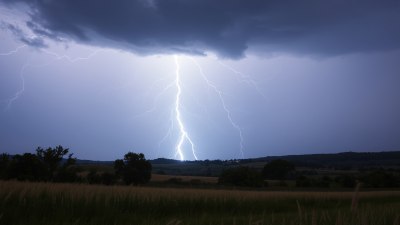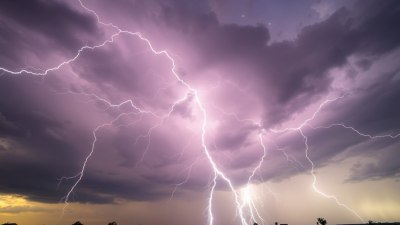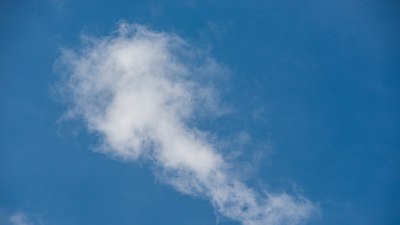If Clouds Could Rate Us on Yelp, Would We Even Get 3 Stars
Exploring the whimsical idea of clouds rating humanity on Yelp and our environmental impact.

Image by droidworker on Freepik
Imagine a world where the clouds, those fluffy witnesses to our daily lives, could express their opinions on humanity through an online review platform like Yelp. What would they say about us? Would they leave glowing five-star reviews for our beauty, kindness, and sense of wonder, or would they criticize our reckless behavior towards the planet, leaving us with a mediocre three-star rating? In this article, we examine the humorous yet insightful concept of how clouds might rate us and what such a review would reveal about our relationship with nature.
The Personification of Clouds
Clouds are not just meteorological phenomena; they are personified entities through which we interpret our emotions and experiences. People often look up at the sky and feel a sense of nostalgia or inspiration, projecting their thoughts and feelings onto these billowing formations. It is easy to imagine clouds sharing their thoughts when they participate in daily observations of humanity. But how would they articulate their perspectives? Could they provide insights into our behaviors, attitudes, and impact on the environment?
Three Stars: A Condescending Rating?
If the clouds gave us three stars, it could be interpreted as a mix of admiration and disappointment. They would recognize our artistic endeavors—how we seek beauty in nature and the effort we put into creation—but simultaneously lament our tendency to harm the very environment that fuels our creativity. The symbolism of three stars might represent a balance between appreciation for our virtues and criticism for our failings. Just as we may appreciate a restaurant for its atmosphere but criticize it for the quality of its food, so too might clouds view humanity.
The Environmental Dilemma
A significant aspect of how clouds would rate us on Yelp stems from our relationship with the environment. Clouds are integral to the earth's ecosystem, playing a crucial role in weather patterns, precipitation, and climate regulation. As guardians of the sky, they would undoubtedly be concerned about air pollution, deforestation, and the harmful effects of climate change. They would likely express specific critiques concerning our contributions to environmental degradation, raising concerns about our industrial activities and reliance on fossil fuels.
Our Efforts at Sustainability
Despite these concerns, clouds might also acknowledge our attempts at sustainability. They would likely notice the rise of environmental awareness and initiatives aimed at preserving natural resources, reducing waste, and promoting renewable energy sources. Could our collective efforts to combat climate change earn us back some of those lost stars? Perhaps, but the progress may not be sufficient in their eyes to justify a higher rating. If the clouds could cheer us on for our improvements, they would also urge us to do much more.
A Review of Humanity's Kindness
One of the most heartwarming aspects that clouds might note is our capacity for kindness and compassion. Moments of beauty such as people helping each other, acts of generosity, and community involvement are all aspects of humanity that the clouds would cherish. These behaviors add warmth and positivity to our collective spirit, reminiscent of a perfectly clear day. Clouds might be inspired to reflect on these moments and how humanity's kindness contrasts sharply with its environmental struggles, reinforcing their mixed feelings about our existence.
The Impact of Technology
In recent decades, technological advancements have transformed how we interact with our environment. Exposed to artificial lighting and digital screens, our lives have become much busier and less connected to nature. Would the clouds feel nostalgic about simpler times, or would they acknowledge the ingenuity of solutions developed through technology? While they might worry about pollution and habitat destruction caused by technological growth, they could also see potential for technology to aid in environmental conservation. If they could rate it, perhaps it would lead to both admiration for innovation and concern over its environmental implications.
Clouds as Observers of Human Events
Clouds have witnessed pivotal moments throughout history. They have hovered over monumental events, both regrettable and uplifting. From celebrations of love to cries of despair, clouds absorb humanity's emotions. They are privy to the dramatic narratives of joy and sorrow, all unfolding beneath them. If clouds could write Yelp reviews, they might reflect on how humanity has shaped the Earth through progress and turmoil, weighing the virtues of cultural growth against the backdrop of conflict and environmental neglect.
A Call to Action
As we ponder the likely Yelp reviews from clouds, we should remember that they are mere metaphors for our relationship with nature. The whimsical idea of clouds giving us a rating serves a greater purpose: to encourage reflection on our actions, our impact on the environment, and our human experiences. Rather than fretting over a three-star rating, let’s meet the clouds halfway, striving for balance in our coexistence with nature. We can write a story where clouds sing our praises, knowing we’re committed to honoring the Earth's well-being. If we aspire to earn those five stars, we must actively work to protect our planet, foster kindness in our communities, and ensure future generations experience the beauty of unspoiled heavens.











